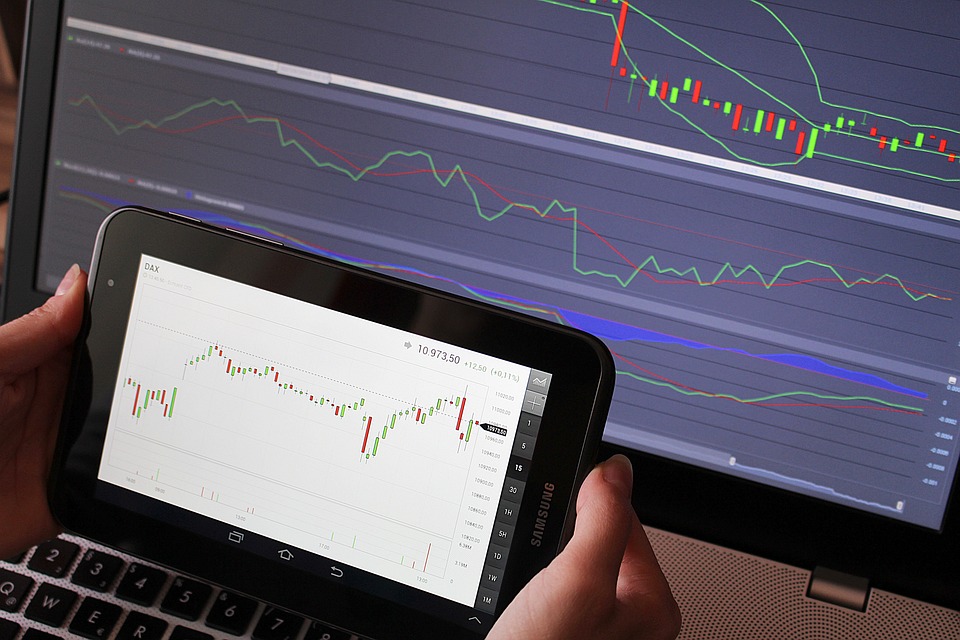New to Forex Trading? Here’s Everything You Need to Get Started
Forex trading, also known as foreign exchange trading, is the buying and selling of currencies on the foreign exchange market. It is a popular way for individuals to speculate on the fluctuations in currency values and potentially profit from these movements. If you are new to forex trading, it can seem overwhelming at first. However, with the right knowledge and tools, you can start trading confidently and strategically. In this guide, we will cover everything you need to know to get started in forex trading.
Understanding the Basics of Forex Trading
Before diving into the world of forex trading, it is essential to understand the basics. The forex market is the largest and most liquid financial market in the world, with trillions of dollars traded daily. Currencies are traded in pairs, with the value of one currency relative to another. The most commonly traded currency pairs include EUR/USD, USD/JPY, and GBP/USD.
When you buy a currency pair, you are essentially buying one currency and selling another. For example, if you buy the EUR/USD pair, you are buying euros and selling US dollars. If the exchange rate of the pair increases, you will make a profit. Conversely, if the exchange rate decreases, you will incur a loss.
Opening a Forex Trading Account
To start trading forex, you will need to open a trading account with a forex broker. There are many brokers to choose from, so it is essential to do your research and select a reputable and regulated broker. Once you have chosen a broker, you can open an account, deposit funds, and start trading.
When opening a forex trading account, you will need to provide some personal information and verify your identity. This is a standard procedure to comply with anti-money laundering regulations. Once your account is verified, you can fund it using a variety of payment methods, such as bank transfer, credit card, or e-wallet.
Choosing a Trading Platform
A trading platform is a software that allows you to place trades and monitor the forex market. Most brokers offer their proprietary trading platforms, as well as popular platforms like MetaTrader 4 (MT4) and MetaTrader 5 (MT5). It is essential to choose a platform that is user-friendly, reliable, and offers the features you need for successful trading.
Before selecting a trading platform, you may want to try out a demo account to familiarize yourself with the platform’s features and functionality. A demo account allows you to trade with virtual funds in a simulated market environment, giving you the opportunity to practice trading without risking real money.
Learning Technical and Fundamental Analysis
Technical analysis and fundamental analysis are two primary methods used by forex traders to analyze the market and make informed trading decisions. Technical analysis involves studying historical price charts and using mathematical indicators to forecast future price movements. Fundamental analysis, on the other hand, focuses on economic and geopolitical factors that influence currency values.
It is essential to learn how to perform technical and fundamental analysis to make informed trading decisions. There are many resources available, such as online courses, books, and webinars, that can help you develop your analytical skills. By combining technical and fundamental analysis, you can gain a comprehensive understanding of the forex market and make strategic trading decisions.
Managing Risk in Forex Trading
Risk management is a crucial aspect of forex trading, as it helps protect your capital and minimize losses. One common risk management strategy is to use stop-loss orders, which automatically close a trade at a predetermined price level to limit losses. Additionally, you can diversify your trading portfolio, use leverage wisely, and avoid overtrading to manage risk effectively.
It is essential to establish a risk management plan before trading forex and stick to it consistently. By setting realistic risk-reward ratios and implementing sound risk management strategies, you can protect your capital and trade with confidence.
FAQs
1. What is forex trading?
Forex trading, or foreign exchange trading, is the buying and selling of currencies on the foreign exchange market. It is a popular way for individuals to speculate on currency values and potentially profit from these fluctuations.
2. How do I start trading forex?
To start trading forex, you need to open a trading account with a forex broker, choose a trading platform, fund your account, and start placing trades. It is essential to educate yourself on the basics of forex trading before getting started.
3. What are the major currency pairs?
The major currency pairs in forex trading include EUR/USD, USD/JPY, and GBP/USD. These pairs are the most commonly traded and have high liquidity in the forex market.
4. How can I learn technical analysis?
You can learn technical analysis through online courses, books, webinars, and practice. Technical analysis involves studying historical price charts and using mathematical indicators to forecast future price movements.
5. What is leverage in forex trading?
Leverage is a tool that allows traders to control a large position with a relatively small amount of capital. While leverage can amplify profits, it also increases the risk of losses in forex trading.
6. How do I manage risk in forex trading?
Risk management is essential in forex trading to protect your capital and minimize losses. Strategies such as using stop-loss orders, diversifying your portfolio, and avoiding overtrading can help manage risk effectively.
7. What are the benefits of forex trading?
Forex trading offers several benefits, including high liquidity, 24-hour market access, low transaction costs, and the ability to profit from both rising and falling markets. However, it is essential to educate yourself and manage risk effectively.
8. Can I trade forex with a small account?
Yes, you can trade forex with a small account by using leverage to control larger positions. However, it is essential to practice sound risk management and only trade with money you can afford to lose.
For more information on getting started in forex trading, check out this comprehensive guide on Investopedia.




